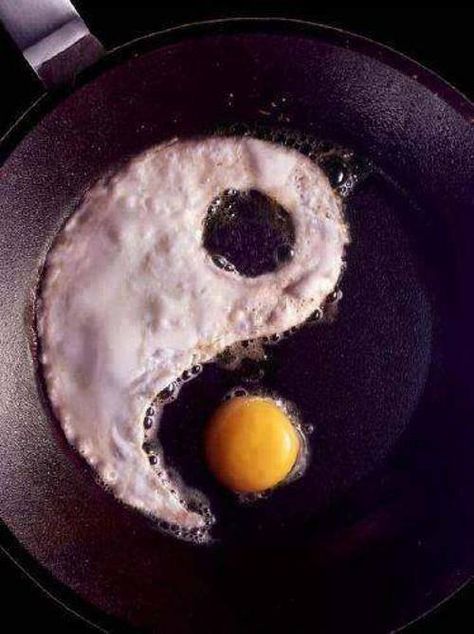It’s gonna be Jan 1, 2028, isn’t it?
Or 2026
Could you. Fucking. Imagine. If he said yes I’ll invade Taiwan in 2027.
He would never say it. He would have said “we don’t comment on internal affairs”.
He could’ve said “Why would I wait until 2027? I could invade it tomorrow if I had wanted”
Dude keeps a beautiful garden. That’s about the nicest thing I can say about him.
Anyone seriously contemplating whether China would invade Taiwan needs to look at a map of Taiwan. There is no feasible invasion of Taiwan without millions of casualties: it would be a fight infinitely worse than Vietnam. Taiwan is the perfect fortress, with urban combat surrounded by densely-forested mountains and decades of buildup explicitly designed by the KMT to block a Chinese invasion. It’s also an island separated by more than a hundred kilometers of open ocean. The KMT understands this, as does the CPC.
The only practical military option available to the CPC is a naval blockade like the US did to Cuba, but the KMT was actively trying to stimulate trade with China in the 2008-2016 period to make a blockade economically infeasible. Today, China imports more goods from Taiwan than from any other country in the world.
All this talk of war is fearmongering and posturing to justify increased defense spending at the cost of a lasting and sustainable peace.
Russia with a population of 140 million is almost at 400k casualties in Ukraine. Do you think China’s leader with a population of 1.4 billion would mind 4 million losses?
It’s a little different invading a flat semi-unprepared country compared to a literal nightmare fortress island that is Taiwan.
140 million is a little difference to 1.4 billion as well.
We should take it serious, most world leaders besides Biden were saying the same just days before Russia started its invasion.
Imagine if Taiwan invades China instead
Among all the other very good reasons this would be a completely fucking stupid and morally bankrupt thing to do (doesn’t mean it won’t happen), this would have a devastating impact globally. You thought the chip shortage was bad during COVID? That was caused by just a change in demand from people’s shift in spending habits. Can you imagine the impact of China trying to invade the country that produces 60% of the entire world supply of chips? When it comes to advanced chips they produce 90% (source).
Just…fuck right off please. Nobody wants you here anyway.
They produce 90% of the world’s advanced chips more out of systematic neglect than out of any technological gap.
Intel floundered years of technological supremacy because they were run by an incompetent manager type. They refused to run a foundry model for decades.
Samsung has completely lost competitiveness and the South Korean government is happy to let them do whatever because South Korea is more like the Samsung government of Korea.
SMIC can’t get access to EUV machines, but even then they’re already knocking on the doors of Intel’s current process.
Can I read more about this somewhere? My understanding was that it would be extremely difficult to the point of impracticality to compete with TSMC or would at least take decades to match them in terms of process and scale. I don’t really know much about chip manufacturing though.
China isn’t held back by personnel. Intuitively, this makes sense even if you subscribe to the Western idea that Chinese people can only copy things: Taiwanese people can easily work in China because of trade/border agreements, China isn’t a poor country, and TSMC employs a massive number of highly experienced engineers. The Taiwan/China culture war is really a Western construct and many TSMC engineers are happy to take jobs in China. SMIC has already shown 7nm DUV capability (comparable to state-of-the-art by Intel).
The only thing holding back Chinese semiconductor capability in terms of hardware is the lack of EUV machines, which are only made by ASML. There are rumours spinning around in Chinese circles that Huawei has an EUV prototype in the debugging stage with a tentative release target of 2025.
If anything, China is far more constrained in terms of software (in a market dominated by Cadence and Synopsys), but this is much more easily circumventable with enough resources. The only reason Cadence and Synopsys haven’t had much competition is because it’s really expensive to develop and doesn’t have that much competitive edge, but that equation changes for China given how happy the US is to slap export restrictions everywhere.
Yeah I guess China firing missiles around Taiwan was just a western construct too I guess. Come on, I’m interested to learn more about chip manufacturing and the practicality or otherwise of someone competing with TSMC and thought you might have interesting sources I hadn’t read.
You could also argue that the U.S isn’t constrained by population and they also have access to the technology and even buy in from TSMC but they haven’t managed to kick start chip manufacturing there yet either unless there are developments there that I missed.
For now, doesn’t seem like the situation is going to be changing anytime soon.
The US is constrained by capitalism and globalization… And years of mismanagement at Intel under Krzanich… and the lack of profitability of Global Foundries.
Intel only recently adopted a foundry model: previously, their fabs were only used to manufacture Intel chips… I’m sure you can imagine some of the issues there, but it helps that Intel is a massive company. Intel really bit off more than they could chew with 10nm and started to lag behind.
GloFo used to be AMD (until it was spun off for profit because AMD needed money… GloFo gave up on 7nm because it was seen as too expensive.
As for Samsung? Nobody really knows why Samsung’s technology sucks, but it sucks. Something wrong with their FinFET process in general I guess.
TSMC isn’t a decade ahead. They’re maybe 5 years ahead of SMIC and maybe 2 years ahead of Intel/Samsung. They’re only so far ahead of SMIC because SMIC isn’t allowed to import EUV machines from ASML since the US decided that China was getting too close to toppling American dominance in semiconductors and AI.
The main thing limiting SMIC is the lack of EUV machines, but Huawei is expected to pop one out soon based on the rumours being spread on Chinese forums. That’s the story. TSMC doesn’t have some magic sauce, they have scale, billions of dollars in government support, and a slight technological edge. If anything, TSMC’s magic sauce is that the most desirable job in STEM in Taiwan is to become an engineer at TSMC: they attract top talent in a way that Intel doesn’t.
Look at when China-Taiwan relations deteriorated. Relations were improving at record pace under the KMT in the 2008-2016 period. The CPC had basically recognized the de facto independence of Taiwan, even having Xi Jinping meet the KMT Chairman in 2015.
That rapidly deteriorated with the election of the DPP in 2016, who immediately took an extremely hawkish view on China, invited the USN to cross through the Taiwan Strait in a FONOPS (which, prior to this, had been established as territorial waters under the status quo), started paying US politicians hundreds of thousands of dollars to speak in Taiwan, coincidentally started seeing more aid from the US, forced TSMC to expand their US footprint (with many complaints from TSMC), and followed the US in placing export controls to China. Years of progress under the KMT unraveled.
You have to understand the context here: under the KMT, it’s agreed that the two parties will disagree on who “rules” the territories of China. It’s also implicitly established that neither party will seek to relinquish their claim on the other’s territories. For both the CPC and the KMT, this is a matter of ideology and policy. Knowing that this ideological block isn’t going anywhere, CPC-KMT discussions led to the conclusion that, fine, we won’t agree, but we also won’t do anything about it. Neither military intruded over the status quo median line, neither military provoked the other with missiles or fighters or whatnot, and it was established that the issue was one of minimal importance compared to economic development and peaceful codevelopment. China knows that taking Taiwan is basically impossible, and Taiwan has no aspirations to retake China.
In comes the DPP, arms swinging, with support from the US, and says that the KMT is clearly siding with the CPC on this issue and is clearly going to seek reunification with the CPC. Reunification is against KMT policy for obvious ideological reasons, but alas. So, the DPP comes in, saying they want de jure independence and to align with the US, fuck China, Taiwanese people aren’t Chinese, etc. etc. Obviously, China isn’t too happy about this, but things proceed as usual.
Taiwan then declares that the Taiwan Strait is international waters (since, per DPP policy, Taiwan is not China and thus the Taiwan Strait doesn’t classify as territorial waters), that they want more weapons from the US, and that they don’t want to trade with China. China is unhappy about this, but it exposes a key vulnerability in the concept of international waters: there’s nothing stopping China from flying in international waters. So, with the justification of the US FONOPS (i.e. sailing an armed US warship) through the Strait, China starts flying sorties past the median line (which, as established, is now international airspace). China also starts shooting missiles from international airspace crossing international airspace into international airspace, using US FONOPS as justification for this being perfectly reasonable. That’s how we ended up here. I’m strongly opposed to the DPP, not strongly opposed to Taiwan. I see the DPP as being intentionally provocative and throwing away a massive economic boon (trade with China) in exchange for the DPP’s own ideological goals. It’s coming at the cost of opportunities in Taiwan, it’s destabilizing the region, and it’s pushing Taiwan into the same unstable flip-flopping political situation as the US.
Right, CCP recognised Taiwan as defacto independent by ratifying the anti secession law in 2005. What are you smoking, mate? I don’t know about the chip situation but I haven’t seen anything substantive from you and it seems to me like you have a somewhat distorted view of the situation as a whole but again, if you have anything source wise that talks about it I’d be interested to read it.
Accidentally posted this in the main comments but this is where I meant to put it.
2008-2016.
Guess who was in power in 2005? That’s right, the DPP.
deleted by creator
Why would they have to believe China






